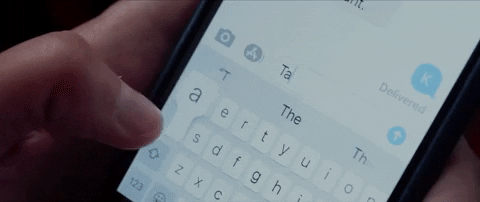
An Australian pensioner was devastated to find her life savings drained after falling for a text message scam that played on her maternal instincts.
The deceptive message claimed that her daughter had accidentally dropped her phone in the toilet, leading 66-year-old Donna Jaeger of Newcastle to engage with the unknown sender.
“I got a text message from my daughter, and she said, ‘oh, mum, I can’t access my banking, would there be a chance you could pay a bill for me'” Jaeger said in an interview.
At first glance, the exchange seemed perfectly genuine; however, the conversation quickly turned for the worse. After some small talk, the sender asked Jaeger for a large sum of money – $1,900 followed by a $6,300 transfer.
Jaeger’s bank imposed a daily transfer limit, which allowed her to send only $960. The fraudulent transaction, sadly, led to the depletion of her savings account.
Consequently, her bank is now making efforts to recover the lost funds.
“I haven’t got any spare cash, really,” she said.
“But of course, if your daughter asks you for money, you will give it to her. Whatever you’ve got that you can give her.”
The next day, Jaeger spoke with her daughter, and she realised she had been duped.
According to Scamwatch, there has been a significant increase in incidents involving the so-called ‘Hi Mum’ scams during the first two months of this year, accumulating more than 1,200 reports and costing Australians over $600,000.
These types of scams have recently become more prevalent, according to University of Newcastle Cyber Strategist Professor Vijay Varadharajan.
The professor explains that there has been a noticeable uptick in this type of fraud within the last 18 months.
This tragic incident is a cautionary tale of the dangers that lurk within seemingly harmless messages and the need for increased vigilance when engaging with unfamiliar contacts.

More Stories
Killnet and AnonymousSudan Collaborate to Launch Cyber Attacks on Western Organisations
In recent news, it has been reported that two Russia-sympathetic hacktivist groups, Killnet and AnonymousSudan, have allegedly launched a series...
$4000 Gone In An Instant: Mother Defrauded in Facebook Marketplace Car Deal
A mother of four is warning others to be cautious after believing she had purchased a safe and dependable car...
Shocking Scam: Sydney Family Loses $200K Life-Savings in Suncorp Spoofing Fraud
A family from Sydney has lost their life savings worth $200,000 due to a fraudulent scam. Peter and Madison, who...
Mysterious Money Transfer Leaves Couple Speechless: How They Got an Unsolicited $4000
A young couple in Melbourne claims their bank is making up a personal loan they do not understand. Ashley and...
Phishing + AI + Voice Cloning= Big Trouble: The New Way Criminals are Stealing Your Money
New Alert: Criminals use AI and voice cloning to trick you out of your money. Earlier this year, Microsoft unveiled...
‘Impossible to Spot’ Delivery Scam Email Targets Australia Post Customers – Don’t Fall Victim!
Unsuspecting shoppers should be cautious as a parcel delivery scam that is hard to distinguish targets Australia Post customers. Email...


